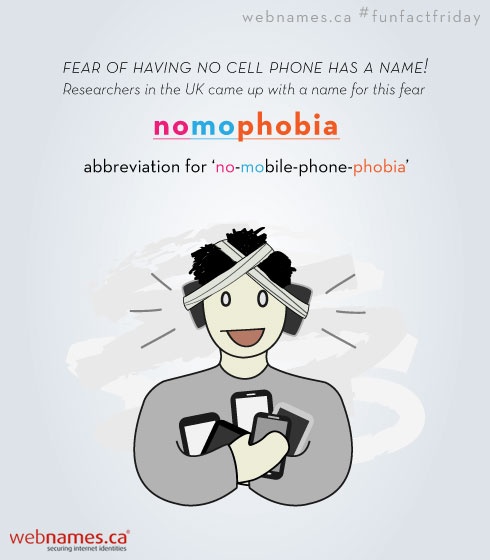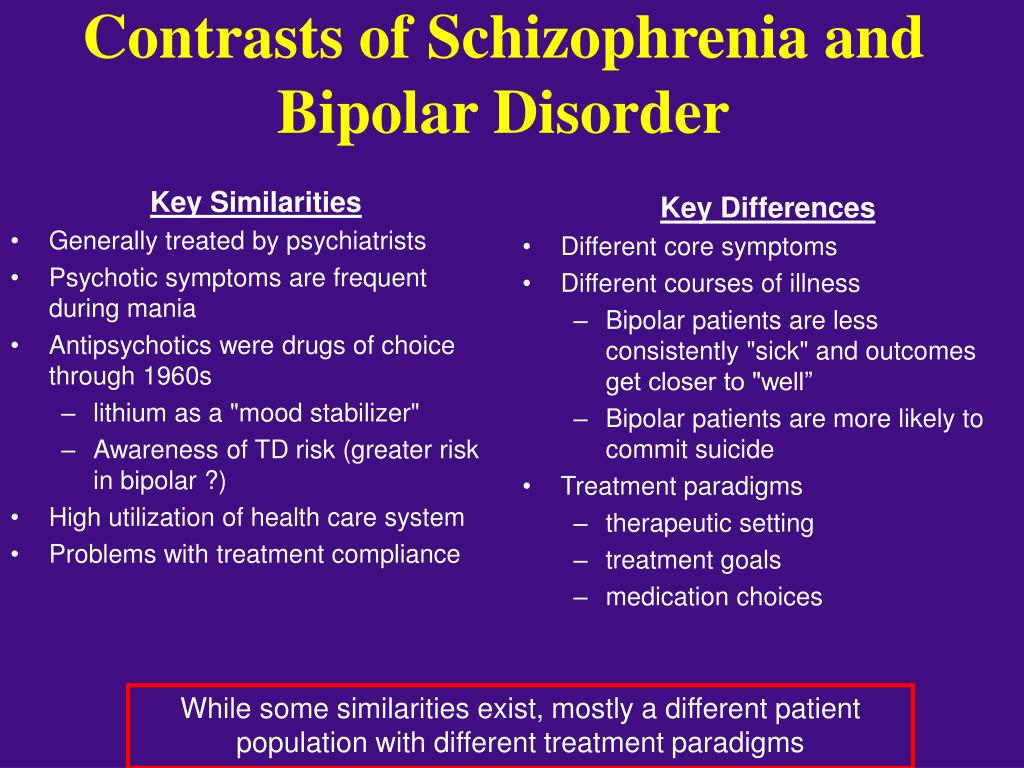Forgiveness and letting go
How to Let Go and Forgive
Post written by Leo Babauta. Follow me on Twitter.
We’ve all been hurt by another person at some time or another — we were treated badly, trust was broken, hearts were hurt.
And while this pain is normal, sometimes that pain lingers for too long. We relive the pain over and over, and have a hard time letting go.
This causes problems. It not only causes us to be unhappy, but can strain or ruin relationships, distract us from work and family and other important things, make us reluctant to open up to new things and people. We get trapped in a cycle of anger and hurt, and miss out on the beauty of life as it happens.
We need to learn to let go. We need to be able to forgive, so we can move on and be happy.
This is something I learned the hard way — after years of holding onto anger at a loved one that stemmed from my childhood and teen-age years, I finally let go of this anger (about 8 years ago or so). I forgave, and not only has it improved my relationship with this loved one tremendously, it has also helped me to be happier.
Forgiveness can change your life.
Forgiveness does not mean you erase the past, or forget what has happened. It doesn’t even mean the other person will change his behavior — you cannot control that. All it means is that you are letting go of the anger and pain, and moving on to a better place.
It’s not easy. But you can learn to do it.
If you’re holding onto pain, reliving it, and can’t let go and forgive, read on for some things I’ve learned.
1. Commit to letting go. You aren’t going to do it in a second or maybe not even in a day. It can take time to get over something. So commit to changing, because you recognize that the pain is hurting you.
2. Think about the pros and cons. What problems does this pain cause you? Does it affect your relationship with this person? With others? Does it affect work or family? Does it stop you from pursuing your dreams, or becoming a better person? Does it cause you unhappiness? Think of all these problems, and realize you need to change.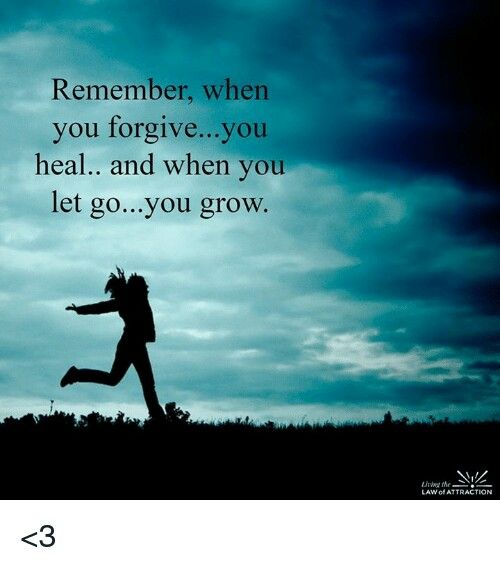 Then think of the benefits of forgiveness — how it will make you happier, free you from the past and the pain, improve things with your relationships and life in general.
Then think of the benefits of forgiveness — how it will make you happier, free you from the past and the pain, improve things with your relationships and life in general.
3. Realize you have a choice. You cannot control the actions of others, and shouldn’t try. But you can control not only your actions, but your thoughts. You can stop reliving the hurt, and can choose to move on. You have this power. You just need to learn how to exercise it.
4. Empathize. Try this: put yourself in that person’s shoes. Try to understand why the person did what he did. Start from the assumption that the person isn’t a bad person, but just did something wrong. What could he have been thinking, what could have happened to him in the past to make him do what he did? What could he have felt as he did it, and what did he feel afterward? How does he feel now? You aren’t saying what he did is right, but are instead trying to understand and empathize.
5. Understand your responsibility. Try to figure out how you could have been partially responsible for what happened. What could you have done to prevent it, and how can you prevent it from happening next time? This isn’t to say you’re taking all the blame, or taking responsibility away from the other person, but to realize that we are not victims but participants in life.
Understand your responsibility. Try to figure out how you could have been partially responsible for what happened. What could you have done to prevent it, and how can you prevent it from happening next time? This isn’t to say you’re taking all the blame, or taking responsibility away from the other person, but to realize that we are not victims but participants in life.
6. Focus on the present. Now that you’ve reflected on the past, realize that the past is over. It isn’t happening anymore, except in your mind. And that causes problems — unhappiness and stress. Instead, bring your focus back to the present moment. What are you doing now? What joy can you find in what is happening right now? Find the joy in life now, as it happens, and stop reliving the past. Btw, you will inevitably start thinking about the past, but just acknowledge that, and gently bring yourself back to the present moment.
7. Allow peace to enter your life. As you focus on the present, try focusing on your breathing. Imagine each breath going out is the pain and the past, being released from your body and mind. And imagine each breath coming in is peace, entering you and filling you up. Release the pain and the past. Let peace enter your life. And go forward, thinking no longer of the past, but of peace and the present.
Imagine each breath going out is the pain and the past, being released from your body and mind. And imagine each breath coming in is peace, entering you and filling you up. Release the pain and the past. Let peace enter your life. And go forward, thinking no longer of the past, but of peace and the present.
8. Feel compassion. Finally, forgive the person and realize that in forgiveness, you are allowing yourself to be happy and move on. Feel empathy for the person and wish happiness on them. Let love for them, and life in general, grow in your heart. It may take time, but if you’re stuck on this point, repeat some of the ones above until you can get here.
—
If you liked this article, please share it on del.icio.us, Twitter or StumbleUpon. I’d appreciate it. :)
The Psychology of Forgiveness: 7 Lessons on How to Finally Let Go and Forgive Someone
A former client of mine we’ll call Mary was the childhood victim of some of the worst abuse I’ve ever heard of: She was chronically beaten by her alcoholic father—having to be admitted to the hospital several times as a result—molested multiple times by another close family member, and frequently manipulated emotionally by her mother in order to hide her father’s abuse and “keep the family safe. ”
”
As Mary recounted her horrific childhood, I was struck by the obvious fact that she was in her mid-seventies and had been living with this pain for a lifetime. She went on to explain how, as bad as the actual abuse was and all the effects it had on her growing up, it was her inability “to let go” now that bothered her most:
I just can’t seem to let go of this… I’ve been in therapy almost my whole life trying to deal with my trauma and be free of it, but I think about it constantly. Dozens of things remind me of my parents and what they did to me every day, and every time I get upset.
I’m 74 old. More than anything I want to be able to forgive them and move on with what’s left of my life.
Needless to say, I was stunned—both by the tragedy of what I’d just heard but also by the challenge ahead of me professionally. How do I help someone who has every reason in the world to be angry, upset, and resentful, to “let it go,” get on with her life—and even, to forgive?
Mary and I worked together for over a year. In that time we gradually uncovered the obstacles to the forgiveness Mary desperately wanted. In the process, Mary slowly found her way to a kind of forgiveness of her family—and along with it, she discovered a degree of peace in her life she’d never known.
In that time we gradually uncovered the obstacles to the forgiveness Mary desperately wanted. In the process, Mary slowly found her way to a kind of forgiveness of her family—and along with it, she discovered a degree of peace in her life she’d never known.
It’s one of the great privileges of my life that I get to work with people like Mary and learn from them every bit as much (if not more) than they learn from me.
What follows are 7 lessons on genuine forgiveness I learned from my work with Mary and other clients like her.
1. Forgiveness does not mean forgetting
Baked into our culture is the notion of “forgive and forget,” the idea that in order to forgive we need to forget the wrongs done to us.
This is nonsense.
Barring some form of serious neurological condition, it’s highly unlikely that you’ll ever be able to forget a serious wrong committed against you.
But, if your bar for achieving forgiveness is elimination from memory, you’re setting yourself up for chronic frustration and even guilt since it’s simply not biologically or psychologically possible.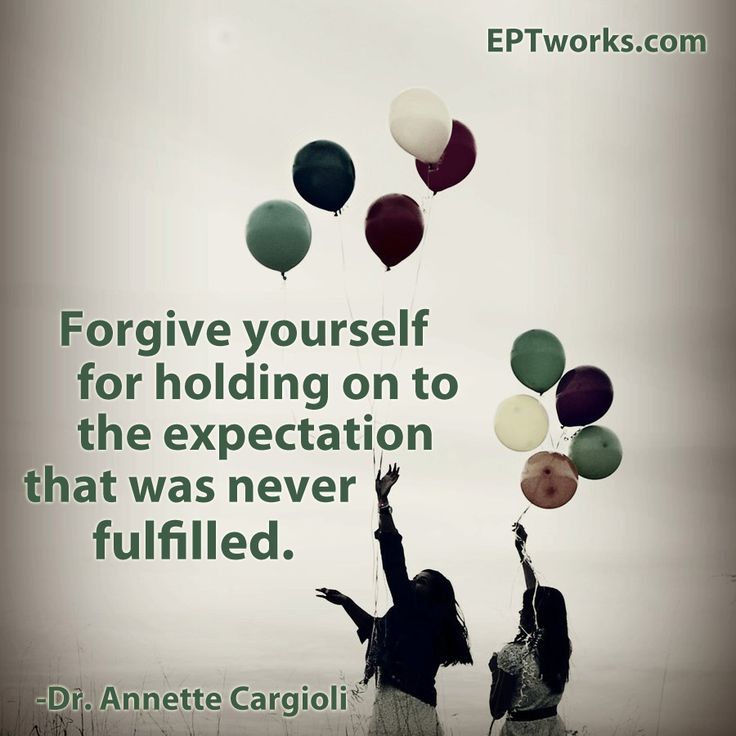
While we can’t control what memories stick with us or not, we can control our attention. Specifically, we can exert control over how much we choose to focus on and ruminate about past wrongs committed against us.
Obviously, some amount of reflection and processing of the offense is likely helpful. But it’s a mistake to assume that because your mind is drawn to a specific thought or memory, you should allow your attention to stay there.
If you choose to engage with and elaborate on these spontaneous memories of your offender or the offense, you will make it more likely that similar thoughts and memories arise in the future. On the other hand, if you acknowledge them but then choose to re-focus your attention elsewhere, you will make it less likely that these memories will intrude on you in the future.
Set and enforce healthy mental boundaries. Your mood will thank you for it.
You can’t control your memories, but you can control your attention.
2.
 Forgiveness and anger don’t mix well
Forgiveness and anger don’t mix wellIt’s normal to feel anger toward your offender. There are good evolutionary reasons for this related to the maintenance of social order and fairness. Feeling angry also temporarily feels good—it’s an ego boost.
But in the long-run, unchecked anger often leads to unhelpful amounts of mental elaboration over the wrongs done to you, which keeps those memories strong and readily accessible in your mind.
The less you mentally elaborate on your anger and what happened to you, the less frequently your mind will remind you of what happened.
When you notice yourself feeling angry, pause briefly and acknowledge the anger, validating that you have every right to feel angry. But then ask yourself: Will continuing to elaborate on what happened and extending my anger do me any good in the long-term?
Just because your anger is justified doesn’t mean it’s helpful. Validate your anger, but don’t feed it.
3.
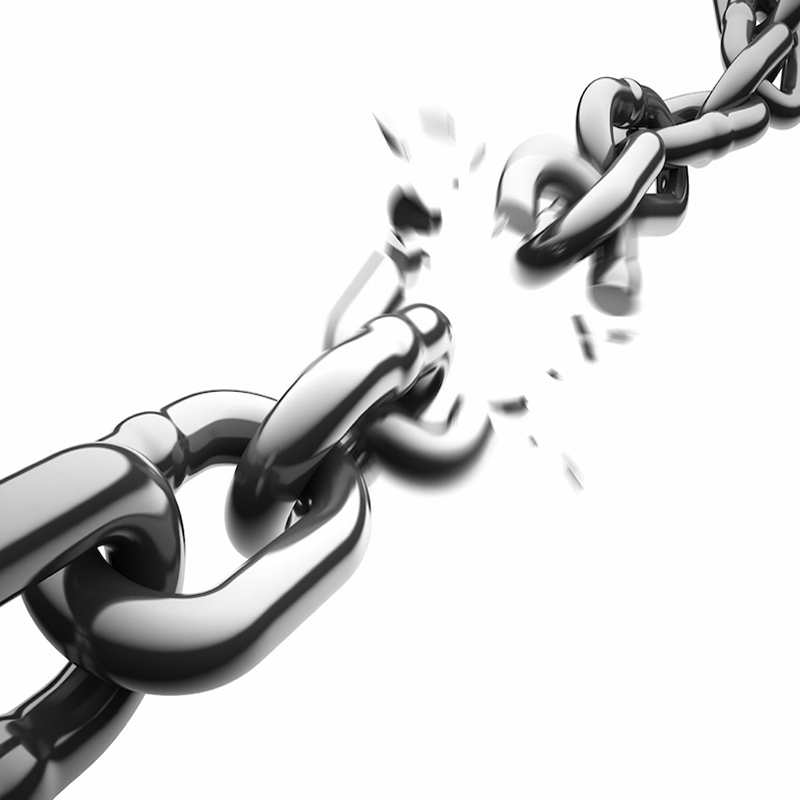 Forgiveness does not mean endorsement
Forgiveness does not mean endorsementMany people who struggle with forgiveness have been given the advice that they need to “accept” what’s happened and move on. The problem is, terms like “acceptance” are fuzzy and mean different things to different people.
Many people hear the word “accept” and assume that it implies endorsement, that you’re somehow okay with what happened or justifying it.
But acceptance does not mean endorsement or justification. Many people who are victims of an injustice are further victimized by being manipulated into believing that they were somehow at fault for the bad thing that happened to them. That’s not acceptance.
Acceptance means acknowledging that you don’t have power or control over the past.
This is a surprisingly hard thing to do for people who have been abused or otherwise wronged somehow because feeling like the past is controllable makes us feel more powerful.
But ultimately, it’s an illusion. Choosing to let go of the desire to control the past is key to taking control over your future.
You can accept an offense against you without excusing it.
4. Forgiveness does not require reconciliation
Many people who have been wronged assume that they must achieve reconciliation with the person who wronged them.
This is especially common, I’ve found, among people with a strong religious background. While I can’t speak to anyone’s specific religious beliefs, I do know that from a psychological perspective, reconciliation is not required for forgiveness. And in fact, holding out for it can actually be detrimental to achieving genuine forgiveness.
The problem with making forgiveness contingent on reconciliation is that other people aren’t under your control. No matter how much you want the person who’s wronged you to see the error of their ways, offer a heartfelt apology and restitution, and mend the relationship, you can’t control that. And it’s dangerous to spend time and energy trying to control things we don’t ultimately have control over.
Specifically, I’ve seen many people who are so focused—borderline obsessed—with achieving reconciliation with their offender, that they don’t have the mental and emotional energy left over to work on the aspects of forgiveness they do have control over. In other words, there’s tremendous opportunity cost in making forgiveness dependent on reconciliation.
Hope for reconciliation if you wish, but don’t expect it.
5. Forgiveness is not one decision
Forgiveness begins with a single decision but it doesn’t end there.
No matter how many stories you hear about the “moment of forgiveness,” realize that forgiveness is a process, a journey.
A firm decision and commitment to forgive is an important first step, but be realistic about the fact that it is just that—a first step. There will likely be many more steps along the road to forgiveness:
- You will continue to see that relative you had the spat with at future family gatherings.

- Memories of your trauma will pop into mind from time to time.
- Your efforts at reconciliation will not be reciprocated.
One decision to forgive is not enough. Be prepared to continue to forgive, day in and day out. And while it may get easier with time, forgiveness is forever.
Forgiveness is not a decision; it’s an attitude, a habit of mind.
6. Forgiveness is not a feeling
Many people struggle with forgiveness because they confuse the act of forgiveness with their expected emotional outcome. Specifically, most people who are struggling to forgive desperately want to feel better—they want peace of mind, less anger and hate, calm and equanimity, perhaps they even want to feel compassion or love toward their offender or the person responsible for their hurt.
But how we end up feeling is a consequence of forgiveness, not forgiveness itself. What’s more, the feelings that follow (or don’t follow) from forgiveness are not always the same. They vary greatly depending on the specifics of the people and circumstances involved.
They vary greatly depending on the specifics of the people and circumstances involved.
There’s no law of the universe that says everyone is guaranteed to feel at peace as a result of forgiveness. In fact, one of the things that make genuine forgiveness so difficult is coming to terms with the fact that how you feel emotionally about a serious wrong committed against you is not fundamentally under your control.
You can control your actions—how you think and how you behave, including the decision to forgive—but how we feel is not something we have direct control over.
People do tend to feel better as a result of forgiveness, but it’s a mistake to expect a certain set of feelings.
Forgiveness is a commitment, not a feeling.
7. Your road to forgiveness is your own
After being wronged, our emotional landscape gets dominated by one or two loud (and sometimes culturally-engrained) emotions, typically some form of anger. But there are almost always other emotions present and worth considering on the road to forgiveness.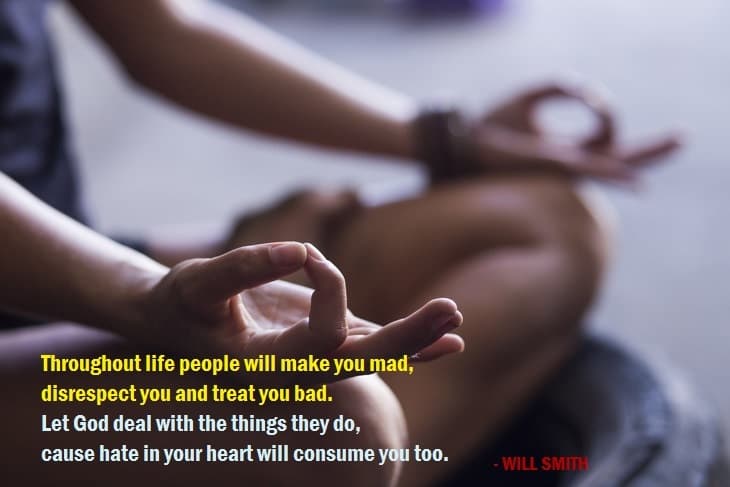
Cultivate the habit of looking beyond and beneath your most obvious emotions and noticing smaller, quieter ones. These are emotions are just as valid as your anger, for example, but they may be more helpful.
If you can allow yourself to feel the sadness, regret, and pity for what happened, for example, you may be able to see your offender and offense in a new light.
In turn, this may help you think about and act differently, perhaps in a way that better aligns with your long-term values and desire to forgive and let go.
Embrace the emotional distinctiveness of your own road to forgiveness.
All you need to know
Too often we think about forgiveness in vague ethical or philosophical terms. But fundamentally, the road to forgiveness is psychological, not moral:
- What are the habits of mind that genuinely set us free from past offenses and wrongdoing?
- What are the decisions we can make and actions we can commit to that will lead to true peace of mind?
- What relationship with the past is most likely to help us move forward?
To find genuine forgiveness and move on with our lives, we must understand the sometimes counterintuitive psychology of forgiveness and commit to our own unique journey toward genuine peace and freedom.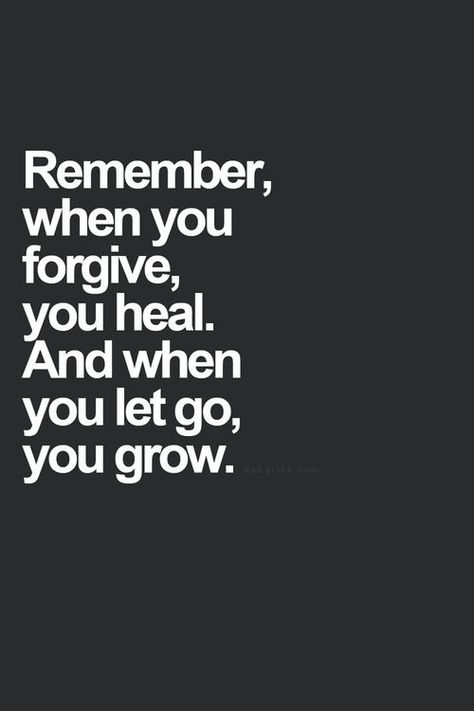
As my client Mary said at the end of our final session together:
I spent my whole life obsessed with what had happened to my past self and how I could fix it. But finally, at 75 years old, I’ve learned to be selfish—to really consider what I want and what I can do to make that happen.
Forgive and let go. But how? – Psychology – Home
- home
- Psychology
- Forgive and let go.
 But how?
But how?
16 Mar 2013 Author: Tatiana Kurnosova
Forgive and let go. But how? Quite often, grievances remain with us for years and even decades, placing a heavy burden on the soul and, as many psychotherapists say, settling ailments in the body. It is enough to remember a painful situation or the one who caused the suffering, as a lump rises in the throat, breath catches, and tears well up in your eyes ... Such a reaction is the first sign that you have not let go of traumatic emotions, and they are still in your body to this day ( yes, yes, all our emotions and pain "live" in the body). It means that somewhere on the energy level you are still attached to the people who hurt you. It's like invisible threads that connect you to ex-lovers, cheating husbands, jealous friends, indifferent parents, or occasional tyrants. With everyone who came across on the path of life and voluntarily or involuntarily caused suffering. These threads carry the vital energy , which could be useful for other purposes, for example, creative ones. But even realizing this, breaking these invisible bonds can be very difficult. The only way is to forgive !
It means that somewhere on the energy level you are still attached to the people who hurt you. It's like invisible threads that connect you to ex-lovers, cheating husbands, jealous friends, indifferent parents, or occasional tyrants. With everyone who came across on the path of life and voluntarily or involuntarily caused suffering. These threads carry the vital energy , which could be useful for other purposes, for example, creative ones. But even realizing this, breaking these invisible bonds can be very difficult. The only way is to forgive !
The magic of forgiveness
Any healer of the soul, be it a psychologist, a priest or a healer, knows that forgiveness has a certain magical power. It always involves inner work on oneself, sometimes requiring not one, but hundreds and even thousands of steps. If you say: “I have forgiven,” but you still feel heaviness in your soul, then you have not yet forgiven. Everyone who has managed to truly forgive feels a surge of strength, lightness and inspiration.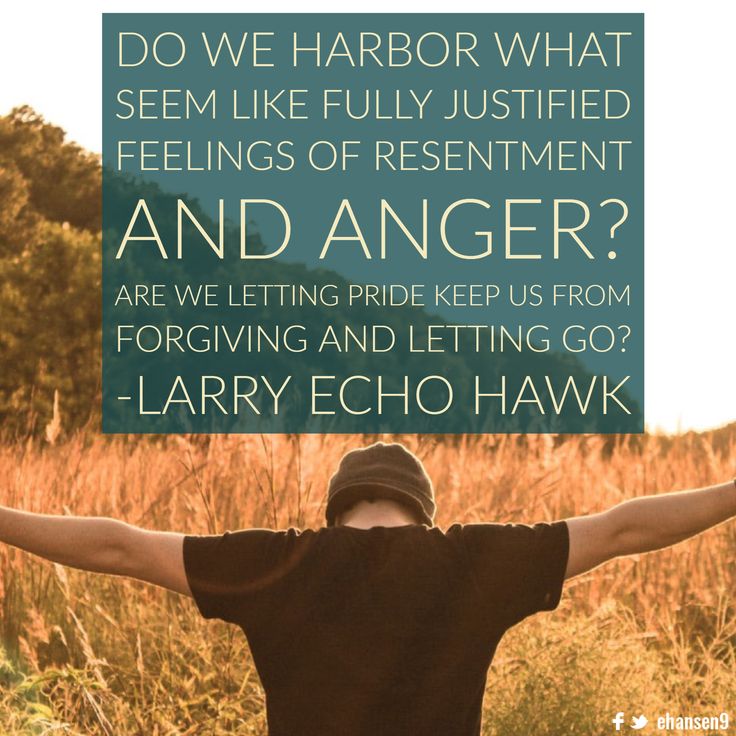 You really become freer, because you have removed a significant block in the path of your life currents. And here it is important to understand:0013 forgiveness is an act of mercy towards oneself, and not a favor and generosity towards offenders and enemies .
You really become freer, because you have removed a significant block in the path of your life currents. And here it is important to understand:0013 forgiveness is an act of mercy towards oneself, and not a favor and generosity towards offenders and enemies .
From the point of view of Gestalt psychologists, every situation that has not ended can take energy from a person. To forgive means to say goodbye, that is, to complete and let go of an unpleasant or painful episode. In other words, stop being a victim, put an end to it and return your inner strength. There are many psychological techniques for forgiveness, but each person has their own path.
Why forgive?
The first step to take is to want to forgive . The motives can be different: for the sake of their own health, freedom and spiritual harmony. Or to stop suffering, let go of old ties and open doors for new love. Or maybe you want to reconcile and give the relationship another chance.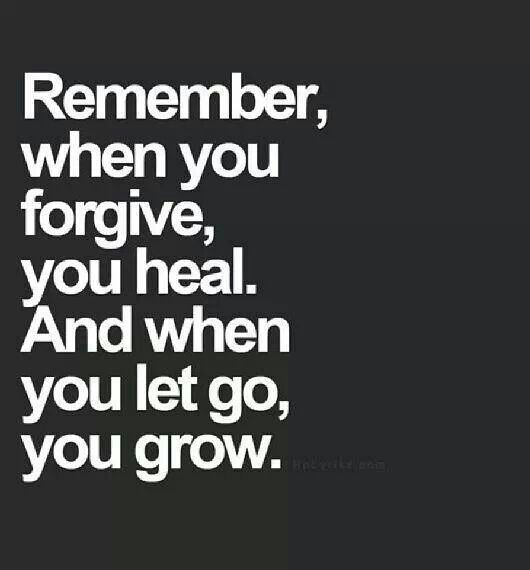 It is important to realize why you are ready to forgive.
It is important to realize why you are ready to forgive.
Essential motive - forgiving, we are cleansed not only spiritually, but also physically . In order to understand this, conduct the following experiment: imagine your offender and the situation that caused your indignation, experience or pain. Fix bodily sensations: for sure, you will feel how your heartbeat has changed, or it has become difficult to breathe, or blood has rushed to your face. Perhaps you wanted to shrink, cringe, or something went cold inside. If think about revenge , then the nervous system will shake even more. Now tell the imaginary offender: “May you feel good ...” If you feel that it has become easier, then you have taken the first step towards liberation. Someone will say: this is unrealistic, how can you wish good, say, to a rapist or a murderer? What to do if anger torments the soul, and pain cannot be expressed in words? Remember that this the phrase works like a boomerang - you wish "good" first of all for yourself. And you need to repeat it until it becomes easier.
And you need to repeat it until it becomes easier.
Retrieve and dispose of
Some spiritual wounds are so deep and old that a person forgets about them, he “licked” them a long time ago, drove them deeper into the subconscious, erased from memory, but this does not mean that he has healed. The scars caused by heavy insults, mental trauma and emotional upheaval will not disappear by themselves. They make themselves felt as soon as something reminds of the situation. Without releasing the pain of the past, a person cannot live a full life in the present. For example, betrayal and the pain of losing love may be expressed in the rejection of a new relationship. Often this happens unconsciously: a man or woman avoids close relationships, breaks contacts as soon as he feels that he is starting to fall in love. Resentments against parents that stretch from childhood affect relationships with your other half, prevent you from expressing your personality in a free way and achieving success.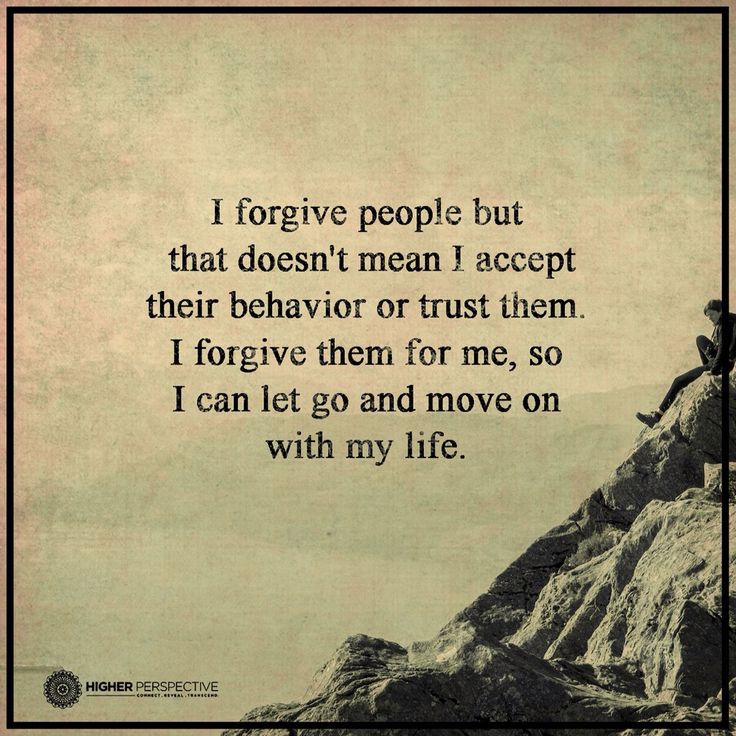 It is important to see them, to get them to the surface . Of course, with that memory, the pain may return again. And is it worth it to “pick” the past for this? Yes. Here, as in surgery, you have to “open the abscess” so that it becomes easier later.
It is important to see them, to get them to the surface . Of course, with that memory, the pain may return again. And is it worth it to “pick” the past for this? Yes. Here, as in surgery, you have to “open the abscess” so that it becomes easier later.
In order to get rid of experiences, one must not only acknowledge them, but also express them. And if the offender is not around, he has long sunk into the past? Or do you live with him in the same family, meet at work, see every day, but you cannot show your rejection? Psychologists in such cases offer different options: for example, write a letter to this person , in which you need to talk about your feelings. What to do with this message later - decide for yourself: you can burn it, tear it up, or even send it to the addressee. The main thing is to realize your feelings, to express them. Another option is to imagine that the person is sitting in front of you (put an empty chair there) and talk to him. Ask questions as you sit in his chair to answer on his behalf. This technique is called " Method of two chairs. Or you can just talk with a big plush toy (crocodile, hippopotamus, bear - any) , imagining that this is your offender, and even beat him if you want to (for the sake of this, pillows are still beaten). The effect will be if you express your emotions to the end. Of course, with the help of a psychotherapist, such techniques work faster and more reliably. The meaning of therapy is that a person experiences pain again, but in a safe environment, expresses it and, finally, becomes free.
Ask questions as you sit in his chair to answer on his behalf. This technique is called " Method of two chairs. Or you can just talk with a big plush toy (crocodile, hippopotamus, bear - any) , imagining that this is your offender, and even beat him if you want to (for the sake of this, pillows are still beaten). The effect will be if you express your emotions to the end. Of course, with the help of a psychotherapist, such techniques work faster and more reliably. The meaning of therapy is that a person experiences pain again, but in a safe environment, expresses it and, finally, becomes free.
Understand motives
Even in ordinary contentious relationships, it is difficult for us to imagine ourselves on the other side of the barricades in order to understand someone else's position. And what about situations in which emotions are hurt, did you feel insulted, offended, or for a long time experienced the misbehavior of someone close to you? However, even here you need to be able to disengage from emotions, at least for a while, and try to find the motives of the offender. Often it turns out that he is led by weaknesses, not strength. Let's say that parents who suppress their own children, in most cases, were deprived of love and a happy childhood. A husband who raises his hand to his wife may subconsciously be afraid of women. The father turns away from the "naughty" son, who did not live up to expectations (became a musician, not a pilot), deep down he hoped that the child would realize dreams that he himself could not fulfill. Realizing the motives of other people, you stop seeing yourself as only a victim: he did this to me because he doesn’t love me, I’m not needed, they don’t appreciate me ... The emphasis shifts from your own feelings to the inner world of another person, you begin to see his imperfection, weakness and misfortune. It also helps not to hold grudges and let go of resentment.
Often it turns out that he is led by weaknesses, not strength. Let's say that parents who suppress their own children, in most cases, were deprived of love and a happy childhood. A husband who raises his hand to his wife may subconsciously be afraid of women. The father turns away from the "naughty" son, who did not live up to expectations (became a musician, not a pilot), deep down he hoped that the child would realize dreams that he himself could not fulfill. Realizing the motives of other people, you stop seeing yourself as only a victim: he did this to me because he doesn’t love me, I’m not needed, they don’t appreciate me ... The emphasis shifts from your own feelings to the inner world of another person, you begin to see his imperfection, weakness and misfortune. It also helps not to hold grudges and let go of resentment.
General cleaning
Many of us intuitively feel: when something is not going well in life, stagnation has come, or troubles have overcome, it is worth thoroughly cleaning your home and throwing out all the rubbish.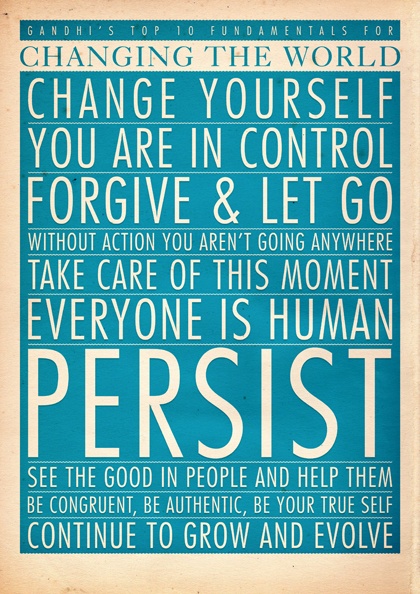 Followers of positive psychology believe that such a general cleaning should be done not only in the house, but also in the soul. The famous writer of motivational books Louise Hay is sure that when something hurts, look for someone to forgive. For a general cleansing, it is useful to make a list of all the people who have met on your way since childhood. At the top of this list should be the people closest to you or those who hurt you the most. Try gradually, step by step, to forgive them insults. By the way, do not forget that for complete happiness, it is necessary to forgive not only others, but also yourself - after all, quite often we scold, punish or do not love ourselves for some misconduct or mistakes. Forgive yourself and others, and life will become easier, life will become more fun!
Followers of positive psychology believe that such a general cleaning should be done not only in the house, but also in the soul. The famous writer of motivational books Louise Hay is sure that when something hurts, look for someone to forgive. For a general cleansing, it is useful to make a list of all the people who have met on your way since childhood. At the top of this list should be the people closest to you or those who hurt you the most. Try gradually, step by step, to forgive them insults. By the way, do not forget that for complete happiness, it is necessary to forgive not only others, but also yourself - after all, quite often we scold, punish or do not love ourselves for some misconduct or mistakes. Forgive yourself and others, and life will become easier, life will become more fun!
Let go of resentment to overcome stress
Consciousness
9/9/2020
Why it is so important to be able to forgive yourself and others
Paweł Czerwiński / Unsplash
In the modern world, the act of forgiveness is often associated with weakness or defeat.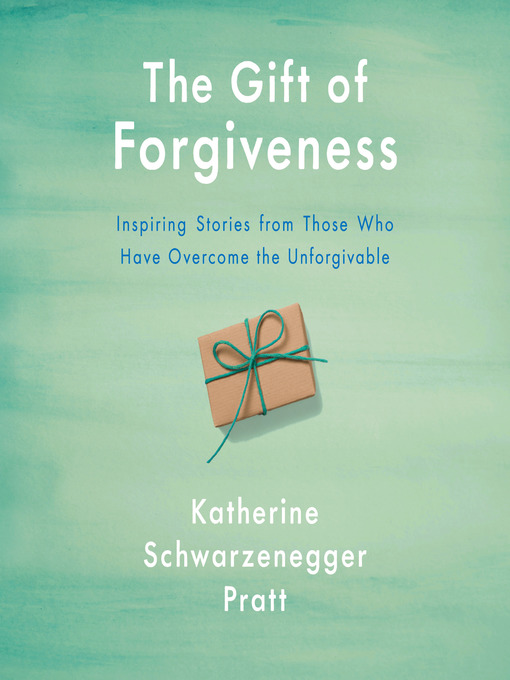 A strong personality, many believe, defends his rightness to the end. It is easier for us to get angry, curse and avoid offenders than to understand and forgive.
A strong personality, many believe, defends his rightness to the end. It is easier for us to get angry, curse and avoid offenders than to understand and forgive.
How rational is this approach? Recently, there is more and more scientific evidence that the ability to forgive is not just a manifestation of nobility, but a valuable practical skill that affects our physical and mental health. The one who forgives does good not only to another person, but also to his own body.
What does it mean to forgive?
Forgive, forget or swallow an insult - what's the difference? One of the founding fathers of the psychology of forgiveness, Robert Enright, explained it this way: you can truly forgive the offender only if you realize that he really harmed you. If for some reason you deny the fact of the offense, forgiveness is impossible. The act of forgiveness can be divided into two phases:
- recognition of the fact of the offense,
- getting rid of the negative emotions associated with the offense.
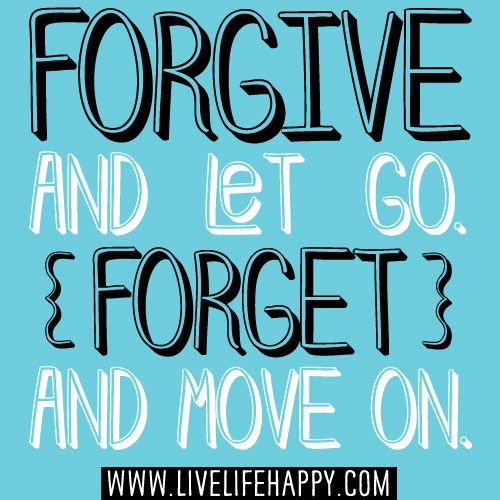
Forgiveness is an internal process, as psychologist Everett Worthington, another researcher of this phenomenon, noted. A formal reconciliation with the offender is not necessary for this. The main thing - overcome fear, bitterness, pain and eventually develop empathy for the person who offended you. In practice, as Worthington explains, this manifests itself in a change in the vector of motivation — from revenge and aggression to a positive compromise. Another important thought: just because you are not ready to put up with the offender does not mean that you cannot forgive him. Conversely, the fact that you forgave him does not have to lead to the restoration of the previous relationship. Forgiveness This is a story about you, not about others.
Unforgiveness = stress
Not to forgive means to keep negative emotions inside: indignation, hostility, anger or hatred towards the offender. "Feelings of resentment and disappointment - this is a huge burden for the body, " Johns Hopkins psychiatrist Karen Schwartz says. We do not have to forgive offenses and adjust our emotional response. But we must keep in mind that negative emotions can affect not only relationships with people, but also our physical and psychological state.
We do not have to forgive offenses and adjust our emotional response. But we must keep in mind that negative emotions can affect not only relationships with people, but also our physical and psychological state.
Psychologists did the following research: they asked volunteers to think about people who had wronged or treated them unfairly in the past. In the process, the subjects measured blood pressure, heart rate, the degree of tension of the facial muscles and the activity of the sweat glands. It is not difficult to guess what happened to test participants when they thought about unpleasant events: they sweated, their hearts began to beat faster, their blood pressure jumped. On an emotional level, they experienced anger, depression, anxiety, lost a sense of control over themselves. These are all typical signs of severe stress. But when the researchers asked subjects to imagine that they had forgiven their offenders, stress levels dropped.
Worthington observed the same pattern in his experiments.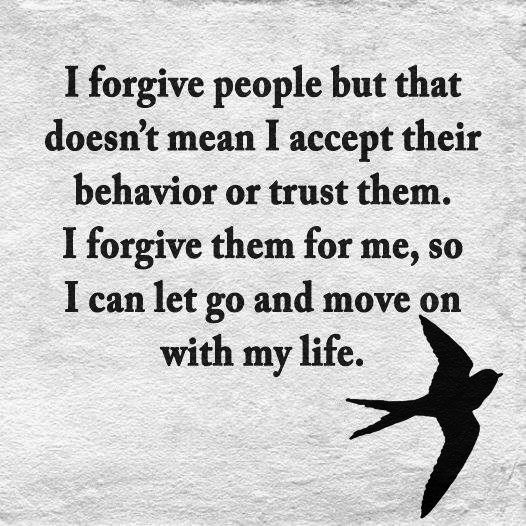 He studied the role of forgiveness in romantic relationships. It turned out that people who consider their relationships terrible, not only have higher concentrations of the “stress hormone” cortisol in saliva, but also have lower scores on a test of readiness to forgive. Happy partners, on the contrary, demonstrated the ability to forgive each other's insults, and their stress level remained within the normal range, despite the inevitable quarrels and frictions.
He studied the role of forgiveness in romantic relationships. It turned out that people who consider their relationships terrible, not only have higher concentrations of the “stress hormone” cortisol in saliva, but also have lower scores on a test of readiness to forgive. Happy partners, on the contrary, demonstrated the ability to forgive each other's insults, and their stress level remained within the normal range, despite the inevitable quarrels and frictions.
Forgiveness = anti-stress and a little more
From a neurobiological point of view, forgiveness is a successful coping strategy under stress that works for three reasons. Firstly, it directly neutralizes the negative impact of resentment: it reduces the stress response, normalizes blood pressure and heart function, and reduces cortisol levels. Secondly, it indirectly helps to change the external emotional background for the better, for example, relationships in a team. Thirdly, it changes the internal state, generating positive emotions. According to the Mayo Clinic, forgiveness can lead to fewer symptoms of depression, improved mood and mental health, and increased self-esteem. But the effect is not limited to the emotional realm. One experiment has shown that sincere forgiveness even improves the immune status of HIV patients.
According to the Mayo Clinic, forgiveness can lead to fewer symptoms of depression, improved mood and mental health, and increased self-esteem. But the effect is not limited to the emotional realm. One experiment has shown that sincere forgiveness even improves the immune status of HIV patients.
How to learn to forgive others
It seems that the ability to forgive is something like a talent: either you have it or you don't. But that's not the case, Worthington is sure. The skill of forgiveness can and should be developed and trained. There is no universal method, but there are several principles that always work.
-
Turn on empathy. British researchers Peter Woodruff and Tom Farrow have shown that the ability to forgive is "hidden" deep in the limbic system - in structures responsible for emotions, and not for rational judgments. So if you want to forgive someone, don't try to logically convince yourself that it would be "reasonable" or "fair.
 " Better think that your abuser - the same person as you. He, too, can make mistakes and be ashamed to openly admit his guilt.
" Better think that your abuser - the same person as you. He, too, can make mistakes and be ashamed to openly admit his guilt.
-
Give vent to your feelings. If you are overwhelmed with resentment and resentment, the first step is to share your emotions with an understanding loved one, advises psychology professor Nathaniel Wade. In such a situation, it is very important to receive a signal from the outside that your reaction is justified, and your feelings are quite adequate.
-
Do not assume the position of the victim. Forgiveness is your conscious decision, the manifestation of your will. It does not depend on the behavior of the other person or on how much they deserve your forgiveness. This is not a favor to another, but a help to oneself. As long as you are angry, you are trapped in the situation. To free yourself, you need to break out of the circle of negative emotions.
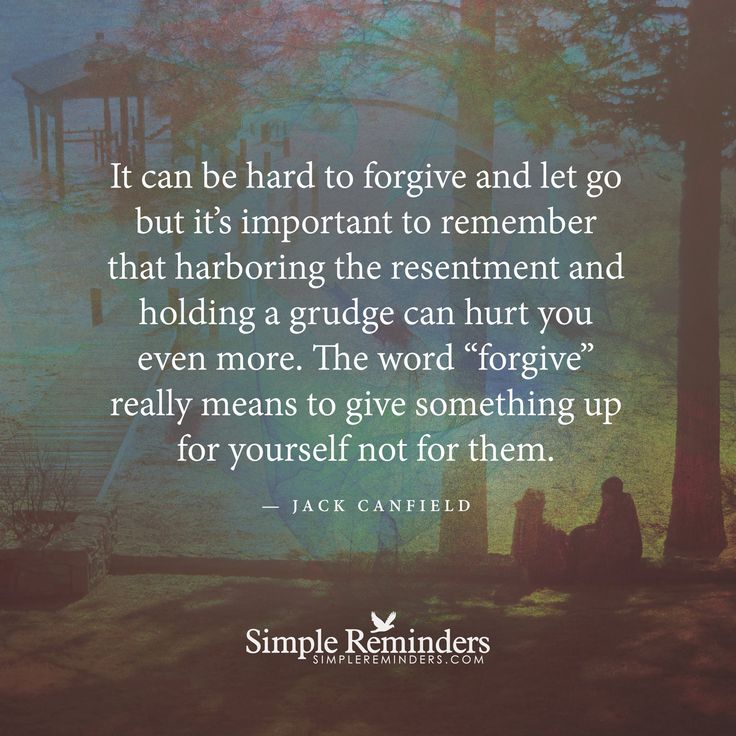
-
Just wait. Time really heals. Experts believe that the degree of forgiveness is often proportional to the time spent on this process. Sometimes it takes years to develop empathy for the offender. But these are years of important psychological work, which in the end always pays off.
How to learn to forgive yourself
The ability to forgive yourself is another important topic studied by the psychology of forgiveness. Nathaniel Wade and his colleague Marilyn Cornish describe 4 stages that a person experiencing guilt must go through.
- Responsibility: the realization that you are to blame for the suffering of another person.
- Repentance: willingness to express feelings of regret.
- Compensation: the desire to materially or morally compensate for the damage caused.
- Renewal: liberation from oppressive feelings of guilt and restoration of self-esteem.

